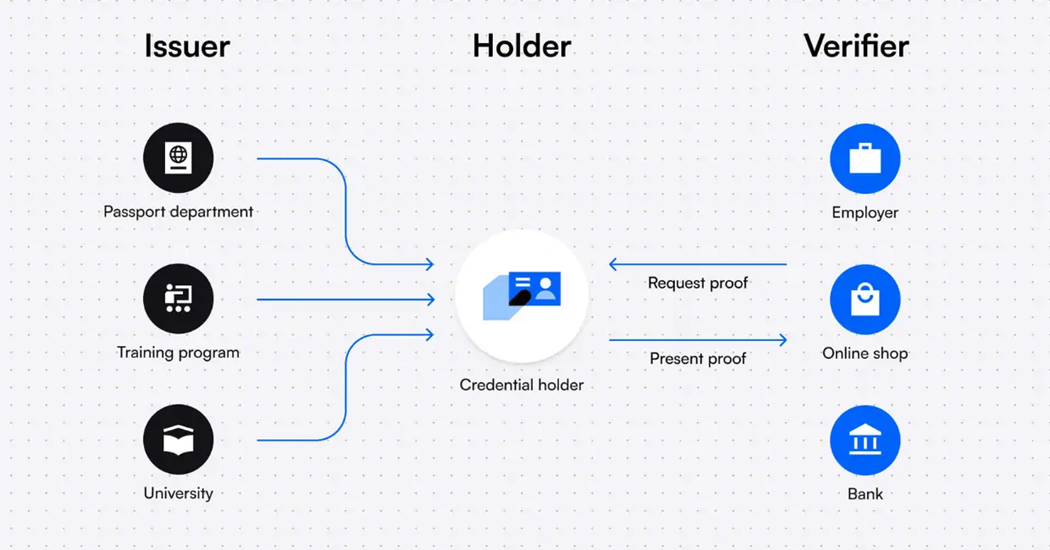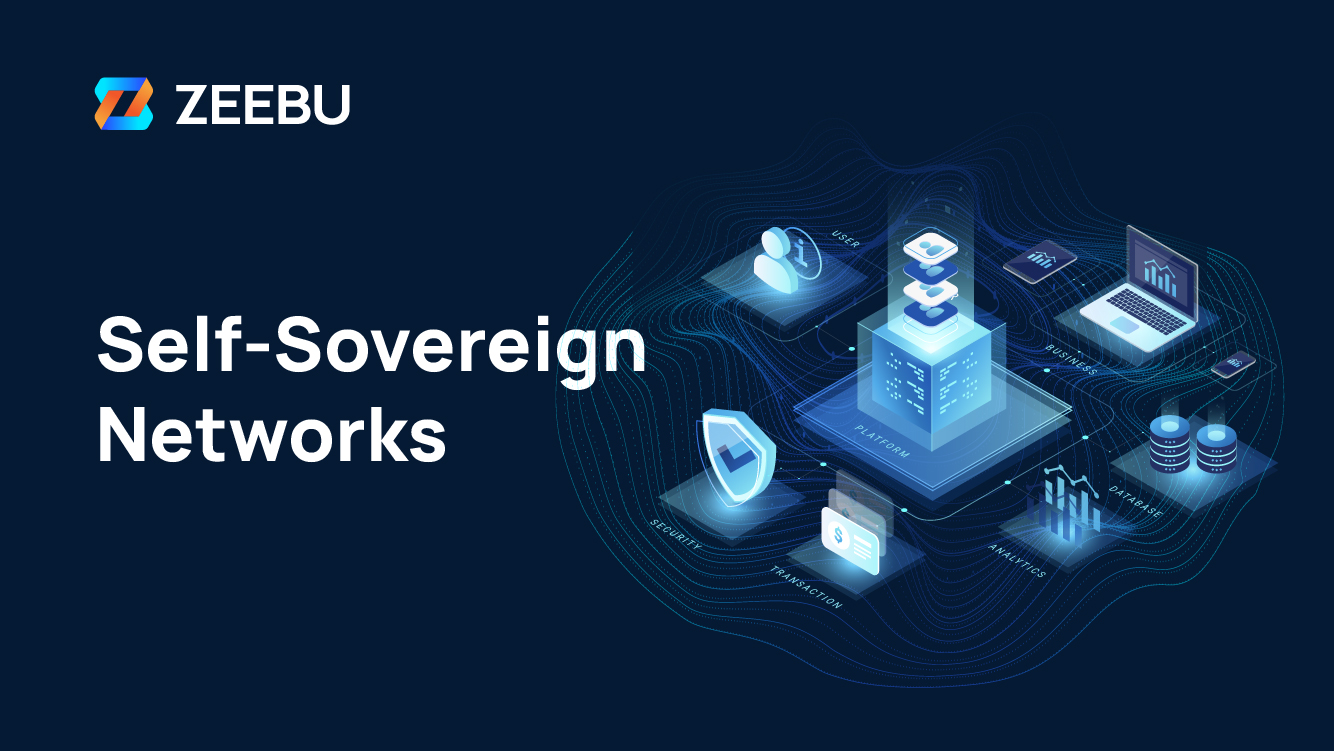How would you feel if you got to know the food you are consuming which is advertised to be loaded with nutrients is actually loaded with contaminants?
How would you feel if you found that the clinical nutritionist you are consulting is having a fake degree?
Do you know cybercriminals earn a whopping $2.2 million by stealing your important information?
All these situations boil down to the problems caused due to outdated verification and traditional identity management systems. Whenever you need to access an app or a website, you need to use your Google or Facebook account (i.e. using a centralized and federated identity management system).
While all of these situations seem completely unrelated, they are all tied back to the recurring problems of outdated verification systems and reduced security with traditional identity management systems.
The centralized systems enable companies to track user data without their knowledge. The user data is also always a data breach away from getting hacked. Yet, Gartner forecasts a 14.3% rise in security and risk management spending worldwide.
If centralized systems are not foolproof, what’s the solution? Self-Sovereign Networks.
What are Self Sovereign Networks?
Self Sovereign Networks (SSNs) are networks of users who control their data and interact directly with each other without relying on centralized authorities. SSNs aim to create a more user-centric and secure online environment where you have greater control over your digital identity.
Take a telecom carrier company for example that offers telephony services to its clients. In the centralized systems, it has to rely on the banks to settle the payments. This setup not only puts the user data of the telecom carrier company at risk but also increases the settlement time.
What if the telecom carrier company sets up a system using a state-of-the-art blockchain system to interact with their users and a crypto token like ZBU to settle invoices? This way, the telecom carrier company would create a self-sovereign network for itself and wouldn’t have to rely on conventional transactional methods.
The Self-Sovereign Networks (SSN) involves three key players:
Holders: These are individuals who create their own digital identity using a digital wallet app. They can also receive credentials that verify certain information about them.
Issuers: These are organizations or entities authorized to issue verifiable credentials. Think of them as the ones vouching for the validity of your information.
Verifiers: These are entities that need to check the validity of the credentials you hold. For example, a bank verifying your identity before approving a loan.

The relationship between the holder, issuer, and verifier in the SSN is often called a "trust triangle." This highlights that whenever a verifier needs information, the holder has the power to decide whether to share their data.
The Technology Behind SSNs
Self-Sovereign Networks (SSNs) rely on the following technologies to run smoothly:
Blockchain Technology
In SSNs, blockchain plays a crucial role in securely storing and verifying data ownership and access permissions. Every transaction involving your data is recorded on this tamper-proof ledger, ensuring transparency and immutability. This allows verifiers to be confident that the credentials you present are genuine and haven't been tampered with.
Decentralized Identifiers (DIDs)
Forget usernames and passwords. In SSNs, you have a Decentralized Identifier (DID). Think of it as a unique digital fingerprint that you control, not a centralized authority. Your DID acts as the foundation of your digital identity, allowing you to connect with different entities online without revealing your personal information. You can create multiple DIDs for different purposes, giving you granular control over what information you share.
Verifiable Credentials
Verifiable Credentials in SSNs enable important digital documents like diplomas or medical to be easily shared and verified. These credentials are issued by authorized entities (issuers) and contain tamper-proof evidence of your qualifications or information. When a verifier needs to check your credentials, you can share them selectively, revealing only the necessary information while maintaining control over your data privacy.
What Are the Key Features of Self-Sovereign Networks?
Self-Sovereign Networks (SSNs) are revolutionizing digital identity management by democratizing power and giving it to the hands of individuals. Here are the key features of SSNs:
Decentralized Data Storage
Imagine a world where your personal information isn't trapped in a single company's database and is vulnerable to breaches. With SSNs, your data is scattered across a secure network of computers. This eliminates the "single point of failure" risk. Even if one computer is compromised, your data remains safe because it's encrypted and split into fragments stored on different devices. To access this information, you, the user, control the access keys. This makes large-scale hacks much harder and protects your sensitive data.
User-Centric Identity Management
SSNs empower you to be the master of your digital self and not rely on the likes of Google and Facebook for authentication. They also enable you to store your credentials in a secured wallet. This digital wallet allows you to share specific pieces of information with different entities. For example, when applying for a loan, you could share proof of your social security number with the lender without revealing your entire online identity. You control what information gets shared and with whom.
Increased Transparency and User Control
SSNs empower you to understand how your data is being used. You can set specific permissions for each service or website you interact with online. This transparency allows you to see exactly who has access to your data and for what purpose. Additionally, if you ever feel uncomfortable about how your data is being used, you can easily revoke access with a few clicks. This level of control fosters trust and minimizes the risk of unauthorized data usage.
By implementing these principles, SSNs offer a paradigm shift in how we manage our digital identities. This puts the power back in your hands instead of government authorities or centralized systems, allowing you to navigate the online world with more security and control.
Use Cases of Self Sovereign Networks
Self-sovereign networks (SSNs), also known as self-sovereign identity (SSI), offer a new approach to managing digital identities. Here are some interesting use cases that highlight the potential of SSNs:
Empowering Individuals: SSNs put users in control of their data. This means individuals can choose what information to share with different entities, increasing privacy and security. For instance, you could use an SSN to prove you’re over 21 to a bar without revealing your date of birth.
Empowering Businesses: SSNs put businesses in control of their data as well. They can choose which credentials to share with potential partners, proving their legitimacy without revealing unnecessary information. This fosters trust and strengthens business relationships. Moreover, Data stored in SSNs benefits from blockchain technology's security features. This makes it tamper-proof and minimizes the risk of fraud. Additionally, SSNs can make KYC processes more auditable, ensuring compliance with regulations. Additionally, SSNs can minimize the risk of data breaches by centralizing credentials, as users wouldn't need to store sensitive information with multiple providers.
Transforming Healthcare: SSNs revolutionize healthcare data management. Patients can control their medical records, granting access to specific data when needed, improving care coordination and privacy.
Supply Chain Transparency: SSNs ensure transparency in complex supply chains. By tracking products with verifiable credentials, consumers can gain insights into a product's origin and authenticity.
How Self Sovereign Networks (SSNs) help businesses?
SSNs enable businesses to have a more secure, efficient, and user-controlled approach. Here’s how:
- Secure Identity Management: SSNs can provide businesses with a secure platform for their customers to manage their digital identities and crypto wallets. Customers can hold and share verifiable credentials on the SSN, proving their identity without revealing sensitive personal information. This reduces the risk of fraud and identity theft for both telecom carriers and their customers.
- Streamlined KYC Compliance: KYC (Know Your Customer) verification is a mandatory process for institutions that are transaction-heavy dealings. SSNs can simplify KYC for telecom carriers by enabling customers to easily share pre-verified credentials with the carrier. This eliminates the need for duplicate paperwork and expedites the onboarding process for crypto services.
- Enhanced Transaction Authorization: SSNs can be integrated with telecom carrier systems to implement multi-factor authentication for crypto transactions. This adds an extra layer of security by requiring users to confirm transactions not only with their password but also through their SSN-linked device or biometric verification.
How SSNs Are Democratizing Payments Globally?
International Payments: The traditional system for international payments can be slow and expensive. SSNs provides a secure and verifiable way to confirm a user's identity and financial status, potentially reducing processing times and fees.
Micropayments: For small, frequent transactions, SSNs enable frictionless payments by streamlining user verification and authorization processes.
Digital Wallets: SSNs integrate seamlessly with digital wallets, allowing users to easily manage their financial credentials and make secure payments across different platforms.
Demystifying SSNs Through the Lens of Zeebu
SSNs are a digital identity system that individuals control themselves, without relying on third-party companies to store and manage their data. It helps the users in the system disclose their identity only to authorized sources which not only protects them from data fraud but also gives the users control over their data and privacy.
Likewise, Zeebu, a web3 Neobank offers a state-of-the-art experience to its customers by streamlining payments and keeping fraud and phishing attacks at bay leveraging blockchain technology and smart contracts.
The Future of Self Sovereign Networks
Self-Sovereign Networks (SSNs) are revolutionizing digital identity management by putting users in control. SSNs use secure, distributed data storage to eliminate single points of failure and empower users to issue and manage their digital credentials. This allows for increased transparency and user control over data access, with users deciding what information to share and with whom. While challenges like standardization and user education exist, SSNs have the potential to transform data ownership and user privacy.
Like what you read? At Zeebu we bring actionable and informative content from the world of blockchain and cryptocurrency. Read more about us on our website or check our socials.

